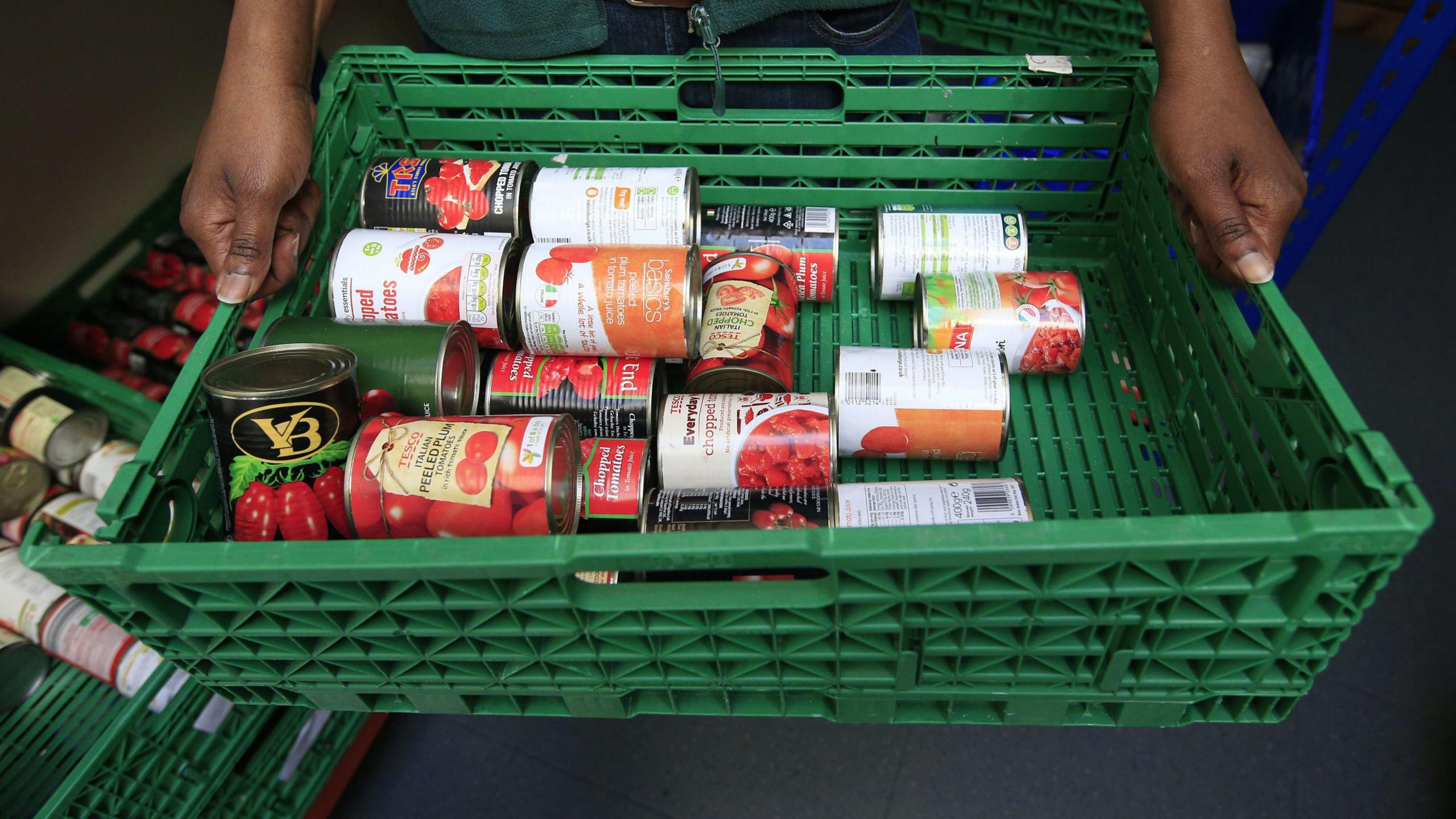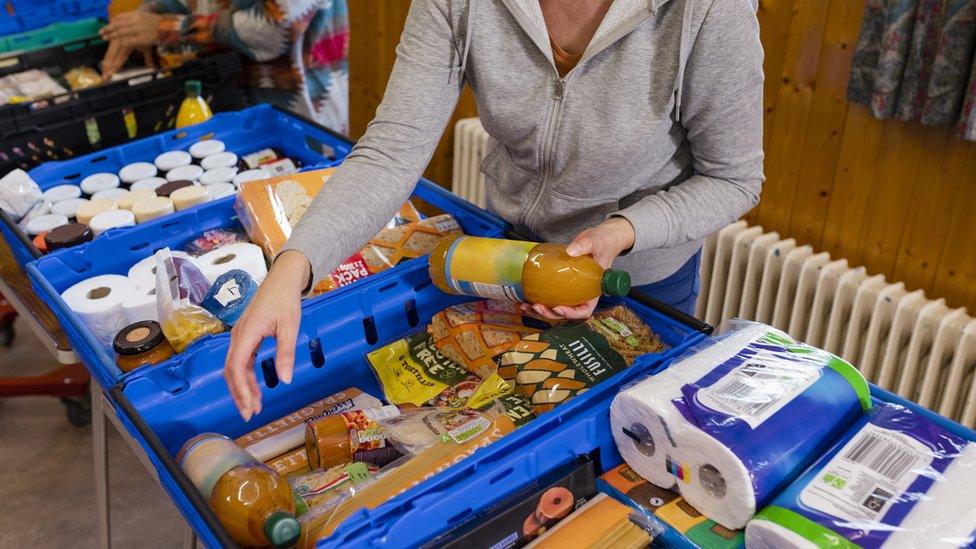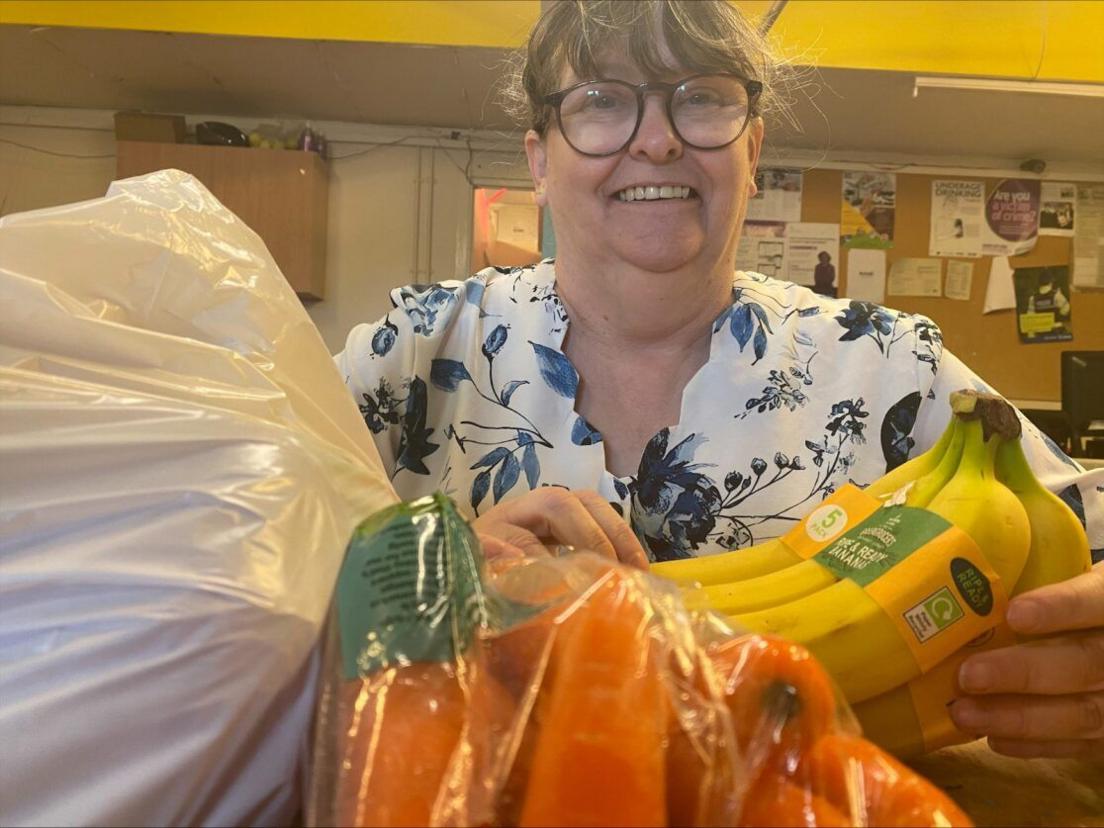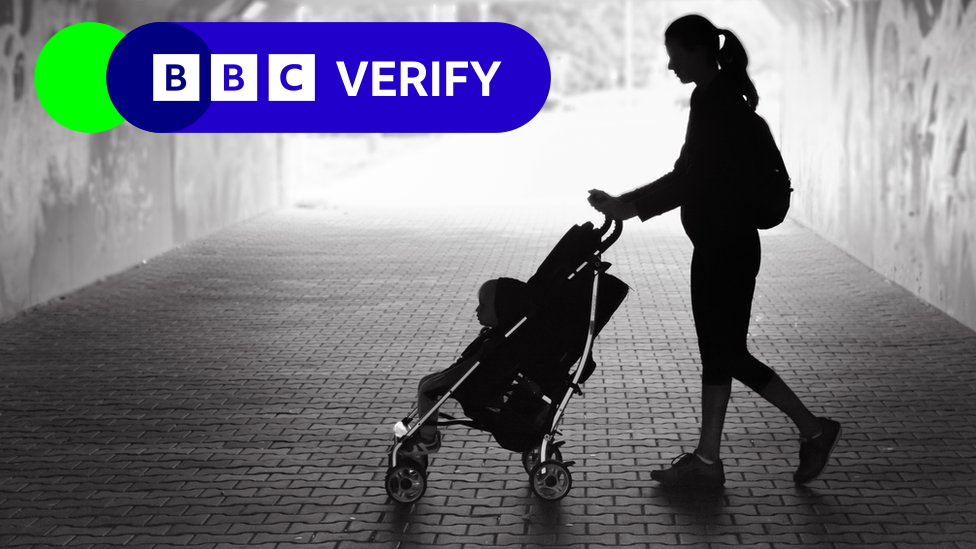Better support reduces food parcel need, trial finds

A trial in County Durham saw a reduction in the need for emergency food parcels
- Published
A trial aimed at ending the need for food banks has led to fewer emergency parcels being handed out in part of the North East, a charity has said.
The Trussell Trust said there was a 68% rise in those distributed across the region over the last five years.
But figures also showed the number of food parcels distributed in County Durham over the last year went down by 28%, after referral centres directed people to more tailored support.
The Department for Work and Pensions (DWP) said there were "200,000 fewer people in the North East in absolute poverty compared to 2010".
The number of food parcels distributed by the Trussell Trust nationally went up by 98% over the last five years, external.
However, 14,996 parcels were distributed in County Durham in 2023-24, compared to 20,804 the previous year.
The charity said the trial had since been rolled out across the UK.
'Tackling underlying cause'
Naomi Dunn, the charity's North East network lead, said it had been testing new approaches to try and end the need for food banks.
It worked with all referral centres in County Durham, including GPs, schools and organisations such as Citizens Advice, to make sure people had more tailored support before attending. The plan was ramped up in July.
"For example, if a school realises a kid has not had breakfast for several days, they've assumed a food parcel is what they need, but actually there may be a more meaningful way that we can support that family," Ms Dunn said.
"We want to help tackle the underlying cause of need, rather than just provide them with food again and again."
Ms Dunn said getting tailored support, like assessing benefits eligibility or connecting people with a debt adviser, could "lift them out" of that situation.
The Trussell Trust, which is the UK's largest food bank provider, asked referral centres to assess if the person needed additional support before they were referred for a food parcel.
'Still not enough'
The County Durham trial was "bearing fruit", Ms Dunn said, but they found people's situation "still can't be significantly changed because of the social security system".
"We do everything that we can do at local level and it's still not enough and that's why we're really pressing at the moment for the government to take the issue seriously," she added.
The Department for Work and Pensions (DWP) said it was providing support.
"There 200,000 fewer people in the North East in absolute poverty compared to 2010, and nationally our £108bn cost of living support package prevented 1.3m people falling into poverty in 2022-23," a spokesperson said.
"After boosting benefits and raising the state pension, we’re putting more money in people’s pockets by raising the National Living Wage, cutting taxes and driving down inflation, while investing billions through our Back to Work Plan to help over a million people break down barriers to work and become more financially secure."
Follow BBC North East on X (formerly Twitter), external, Facebook, external and Instagram, external. Send your story ideas to northeastandcumbria@bbc.co.uk
Related topics
More stories from BBC North East and Cumbria
- Published26 April 2023

- Published24 April 2024

- Published21 March 2024
